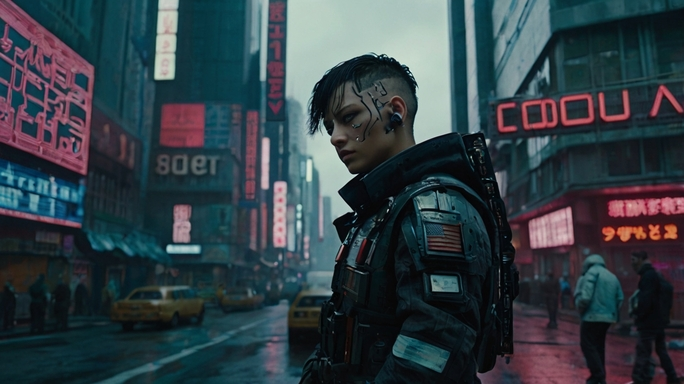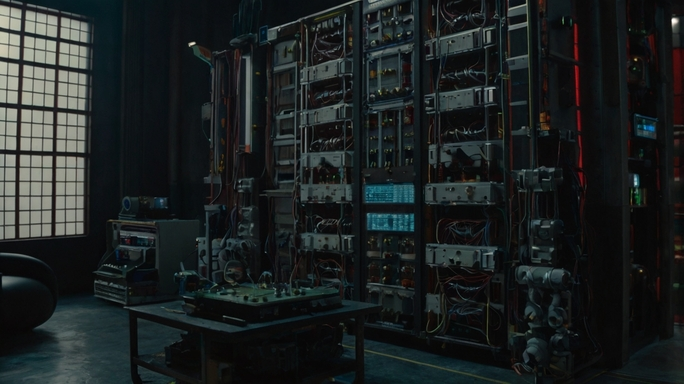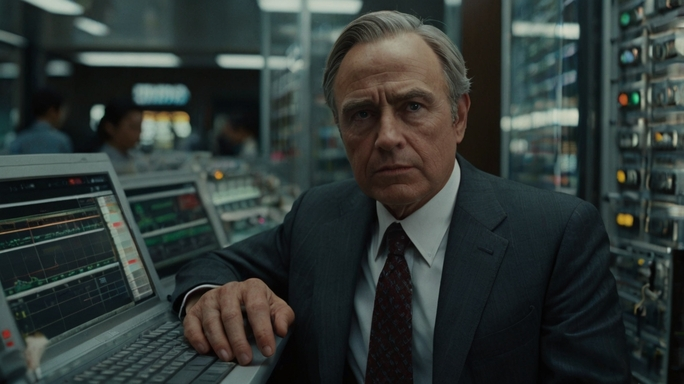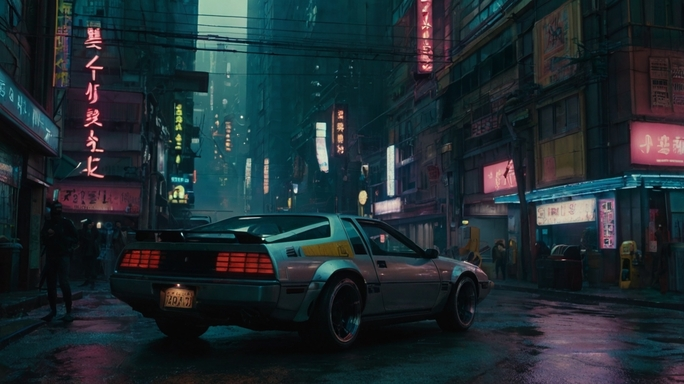
In a not-so-distant dystopian future, the line between technology and governance blurs as decentralized autonomous organizations (DAOs) evolve from blockchain-based experiments into global power players. These digital entities, driven by code and managed collectively by participants, could redefine political structures, financial systems, and the concept of sovereignty itself. As nation-states grapple with the decentralizing force of DAOs, global politics and economics might be reimagined in ways both thrilling and terrifying. This article explores how DAOs could reshape governance, influence economies, and potentially challenge or complement traditional power structures.
Understanding DAOs: Foundations of Decentralized Power

DAOs are digital organizations that operate on blockchain technology, where rules and decisions are governed by smart contracts and the consensus of participants. Unlike traditional corporations or governments, DAOs lack centralized leadership. Instead, decisions are made through transparent voting processes involving token holders, ensuring that power is distributed among stakeholders.
Key characteristics of DAOs include:
- Transparency: All decisions and transactions are recorded on an immutable blockchain.
- Decentralization: Power is spread across a global network, reducing dependence on centralized authorities.
- Automation: Smart contracts execute predefined rules without the need for human intervention.
- Inclusivity: Participation is often open to anyone with internet access and the required tokens.
Initially designed for managing shared resources, funding projects, or running decentralized applications (dApps), DAOs are rapidly evolving, with some now exploring broader roles in governance and economic coordination.
From Blockchain to Governance: DAOs as Political Entities
Imagine a scenario where DAOs govern communities, cities, or even nations. Unlike traditional governments bound by geography and central authority, DAOs offer a borderless, digital-first alternative. Here’s how DAOs might reshape governance:
1. Digital Nation-States
A DAO could function as a digital nation-state, offering citizenship and governance to anyone who aligns with its values or owns its tokens. These entities could rival traditional governments by:
- Providing digital IDs and decentralized voting systems.
- Establishing their own currencies or integrating with cryptocurrencies.
- Offering services such as dispute resolution, education, or welfare through smart contracts.
For instance, the rise of “network states” — as theorized by Balaji Srinivasan — envisions communities bound by shared values rather than physical borders. DAOs could take this further by providing governance structures that are efficient, inclusive, and adaptable.
2. Borderless Governance
DAOs operate globally by design. This could lead to challenges for traditional governments, which are constrained by territorial sovereignty. For example, a DAO managing environmental conservation might have members in dozens of countries, making it difficult for any one government to regulate its activities. This raises questions about jurisdiction and accountability.
3. Decentralized Policy-Making
Through transparent and participatory governance models, DAOs can democratize policy-making. Decisions are no longer made behind closed doors but openly debated and voted upon. This could reduce corruption and increase trust in governance systems. However, it also opens the door to populism and the risk of mob rule, especially in scenarios where token-weighted voting gives disproportionate influence to wealthy participants.
Economic Power: DAOs as Financial Titans
DAOs are already making waves in finance. Platforms like MakerDAO and Uniswap demonstrate how decentralized entities can rival traditional financial institutions. In a dystopian future where trust in centralized systems erodes, DAOs could dominate global finance.

1. Challenging Central Banks
DAOs could issue stablecoins or other cryptocurrencies that undermine central bank authority. Imagine a world where a DAO-backed currency becomes more stable and widely accepted than a government-issued one. This could destabilize national economies, especially in countries with weak monetary systems.
2. Reshaping Resource Allocation
DAOs managing large pools of capital can influence global markets. For example, investment DAOs like FlamingoDAO pool resources to acquire high-value assets, from digital art to real estate. In the future, such DAOs could control critical infrastructure or commodities, challenging state control over strategic resources.
3. Enabling Global Trade
DAOs simplify cross-border trade by automating transactions and eliminating intermediaries. Supply chain DAOs could optimize logistics, while decentralized marketplaces could connect buyers and sellers directly. This would weaken the influence of traditional financial systems like SWIFT or regulatory bodies like the WTO.
DAOs vs. Nation-States: Clash or Collaboration?
The rise of DAOs as governing entities sets the stage for a confrontation between decentralized and centralized power. However, the relationship need not be purely antagonistic. Here are three possible scenarios:
1. Conflict: DAOs vs. Governments
In this scenario, DAOs challenge nation-states directly, leading to conflicts over jurisdiction, taxation, and regulation. Governments might try to suppress DAOs through legislation, sanctions, or cyber warfare. However, DAOs’ decentralized nature makes them resilient to such attacks, potentially triggering a prolonged struggle.
For instance, a DAO providing unregulated financial services might be targeted by governments fearing capital flight. Yet, its global, borderless nature could render enforcement efforts ineffective.
2. Coexistence: Parallel Systems
Governments and DAOs might coexist, with each focusing on its strengths. Governments could regulate physical spaces and enforce laws, while DAOs govern digital communities and manage global-scale initiatives. This symbiotic relationship might lead to hybrid governance models where DAOs augment or complement state functions.
3. Integration: DAOs within Governments
Governments could adopt DAO principles to improve transparency and efficiency. For example, municipal governments might use DAOs to manage public funds, allowing citizens to vote on budgets. This could restore public trust in governance and demonstrate how DAOs and nation-states can collaborate.
Risks and Ethical Challenges
The rise of DAOs as political and financial entities is not without risks. Key concerns include:
1. Concentration of Power
Despite their promise of decentralization, DAOs often concentrate power in the hands of a few wealthy token holders or developers. This could replicate, rather than solve, the inequalities present in traditional systems.
2. Lack of Accountability
DAOs operate without centralized oversight, making it difficult to hold them accountable for harm caused by their actions. For instance, a DAO managing a decentralized social media platform might fail to curb harmful content, leading to real-world consequences.
3. Regulatory Grey Areas
DAOs often operate outside traditional legal frameworks, creating challenges for regulation. Governments might classify them as illegal entities, while participants could face legal risks.
4. Vulnerability to Exploits
Smart contracts, while powerful, are not infallible. Bugs or exploits in DAO code could lead to catastrophic losses, as seen in the infamous 2016 DAO hack.
The Cyberpunk Future: A Speculative Look
In a fully cyberpunk future, DAOs could dominate not only governance and finance but also culture, security, and innovation. Consider the following scenarios:

- DAO-Run Mega-Corporations: Corporations evolve into DAOs, where employees and customers hold tokens and vote on company policies.
- Digital Mercenaries: Security DAOs hire and deploy decentralized forces, offering protection services to the highest bidder.
- Cultural Renaissance: Art and entertainment DAOs fund creators directly, bypassing traditional industries.
- Terraforming DAOs: Global efforts to combat climate change or colonize other planets are led by DAOs pooling resources from millions of contributors.
These possibilities highlight the transformative potential of DAOs but also underscore the need for thoughtful design and regulation to prevent dystopian outcomes.
Breaking Down the Barrier
DAOs represent a profound shift in how power, resources, and decision-making are distributed. As these digital entities evolve into governing forces, they could challenge the very foundations of nation-states, reshaping global politics and finance in unpredictable ways. Whether DAOs usher in an era of transparency, efficiency, and inclusion or exacerbate inequality and conflict depends on how they are designed, regulated, and integrated into existing systems.
In this cyberpunk-inspired future, the world may witness the rise of “DAO-states” — digital nations without borders, leaders, or central authority. As traditional governments grapple with this new reality, humanity faces a critical choice: to embrace the potential of DAOs for collective good or resist their rise to preserve the familiar order. Either way, the age of DAO-driven governance is no longer science fiction; it’s a rapidly approaching reality.
Additional Resources
Ethereum.org: Learn About DAOs
An official resource providing a detailed introduction to DAOs, their structure, use cases, and how they operate.
Explore Ethereum’s DAO Guide
CoinDesk: How DAOs Are Reshaping Governance
Analyzes the implications of DAOs for governance and their potential to redefine political and social systems.
Read the article on CoinDesk
Bankless: The Future of DAOs
A podcast and written series exploring the cultural and financial impact of DAOs in the decentralized economy.
Visit Bankless
The Defiant: DAO Case Studies
Dive into specific case studies of DAOs that have successfully managed significant projects and communities.
Learn more at The Defiant
Aragon: Build Your Own DAO
Aragon provides tools and frameworks for creating and managing DAOs, from community governance to business operations.
Start Building with Aragon
Messari: DAO Landscape Analysis
An extensive report detailing the state of DAOs, including data on growth, challenges, and notable examples.
Access Messari Reports
DAOstack: The Architecture of Decentralized Organizations
A platform offering resources and tools to create scalable and user-friendly DAOs for various use cases.
Visit DAOstack
World Economic Forum: The Rise of Decentralized Governance
A thought-provoking analysis on the societal impact of DAOs and how they could influence global systems.
Read the WEF Report
Gitcoin: Decentralized Collaboration
Gitcoin enables decentralized collaboration and funding, showcasing how DAOs can empower global communities.
Explore Gitcoin
Uniswap Governance
Learn about one of the most successful DAOs governing a decentralized exchange, with insights into its decision-making processes.
Discover Uniswap Governance
Snapshot: DAO Voting Systems
A popular tool for DAO governance, Snapshot allows decentralized communities to vote on proposals without high transaction fees.
Use Snapshot for Voting
Legal DAO: Navigating Legal Challenges
An organization dedicated to exploring the legal implications and frameworks for DAOs in various jurisdictions.
Learn About Legal DAO
MIT Technology Review: The Future of DAOs
A comprehensive analysis of how DAOs could influence political, social, and economic systems.
Read MIT Technology Review
DAOrayaki: DAO News and Research
A hub for the latest developments, news, and research focused on decentralized autonomous organizations.
Stay Updated on DAOs
Radicle: Decentralized Code Collaboration
Radicle offers a peer-to-peer alternative to GitHub, empowering DAOs and developers to manage projects without centralized platforms.
Explore Radicle
These resources will help you delve deeper into the transformative potential and challenges of DAOs in governance and finance.
Must Read : Top Mining Hardware

